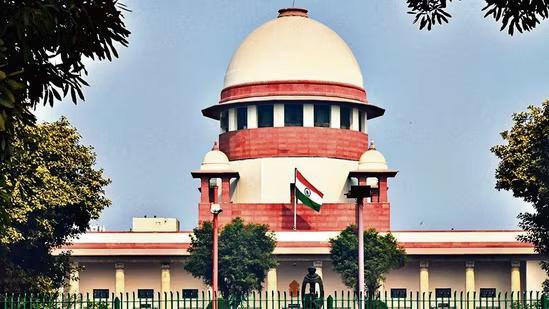
No Action Against Owners of 10 & 15-yr-old Diesel & Petrol Vehicles for 4 Weeks: SC
In a significant ruling, the Supreme Court has stayed the ban on 10-year-old diesel and 15-year-old petrol vehicles in Delhi, giving the owners a four-week reprieve from any “coercive” action. The order was passed in response to an application filed by the Delhi government, which challenged the ban as a pollution control measure in the capital.
The ban, which was imposed by the Supreme Court in November 2019, aimed to reduce air pollution in Delhi by restricting the movement of old vehicles. However, the Delhi government appealed against the order, arguing that it was not feasible to implement the ban and that it would cause significant hardship to the owners of these vehicles.
The Supreme Court’s latest order is a temporary relief for the owners of these vehicles, who had been facing the prospect of having their vehicles impounded or being forced to pay hefty fines. The court’s decision will give the owners of these vehicles some breathing space to explore alternative options or upgrade to newer, cleaner vehicles.
The ban had been imposed as part of a series of measures to combat air pollution in Delhi, which has become a major issue in recent years. The city’s air quality is often worse than that of other major cities in the world, and the Supreme Court has been under pressure to take action to reduce pollution levels.
The Delhi government has been implementing a range of measures to reduce pollution, including the ban on old vehicles, increasing the number of public transport options, and promoting the use of electric vehicles. However, the ban on old vehicles had been a contentious issue, with many owners arguing that it was unfair and that they had not been given sufficient notice.
The Supreme Court’s decision to stay the ban is likely to be a relief to many vehicle owners, who had been facing significant financial and practical difficulties as a result of the ban. The court’s order has been hailed as a victory for the owners of these vehicles, who can now continue to use their vehicles without fear of being impounded or fined.
However, the court’s decision is not without its limitations. The order is only temporary, and the Supreme Court has left the door open for the Delhi government to appeal against the decision or to take further action to reduce pollution levels. The Delhi government has already indicated that it will continue to push for the ban, and it is likely to seek to appeal against the court’s decision in the near future.
The Supreme Court’s decision also raises questions about the effectiveness of the ban as a pollution control measure. While the ban may have been intended to reduce pollution levels, it is clear that it has caused significant hardship to many vehicle owners. The court’s decision to stay the ban may be seen as a recognition of the need to balance the need to reduce pollution with the need to protect the rights of vehicle owners.
In conclusion, the Supreme Court’s decision to stay the ban on 10-year-old diesel and 15-year-old petrol vehicles in Delhi is a significant development in the ongoing efforts to reduce air pollution in the city. While the ban may have been intended to reduce pollution levels, it is clear that it has caused significant hardship to many vehicle owners. The court’s decision to stay the ban may be seen as a recognition of the need to balance the need to reduce pollution with the need to protect the rights of vehicle owners.
Source:






